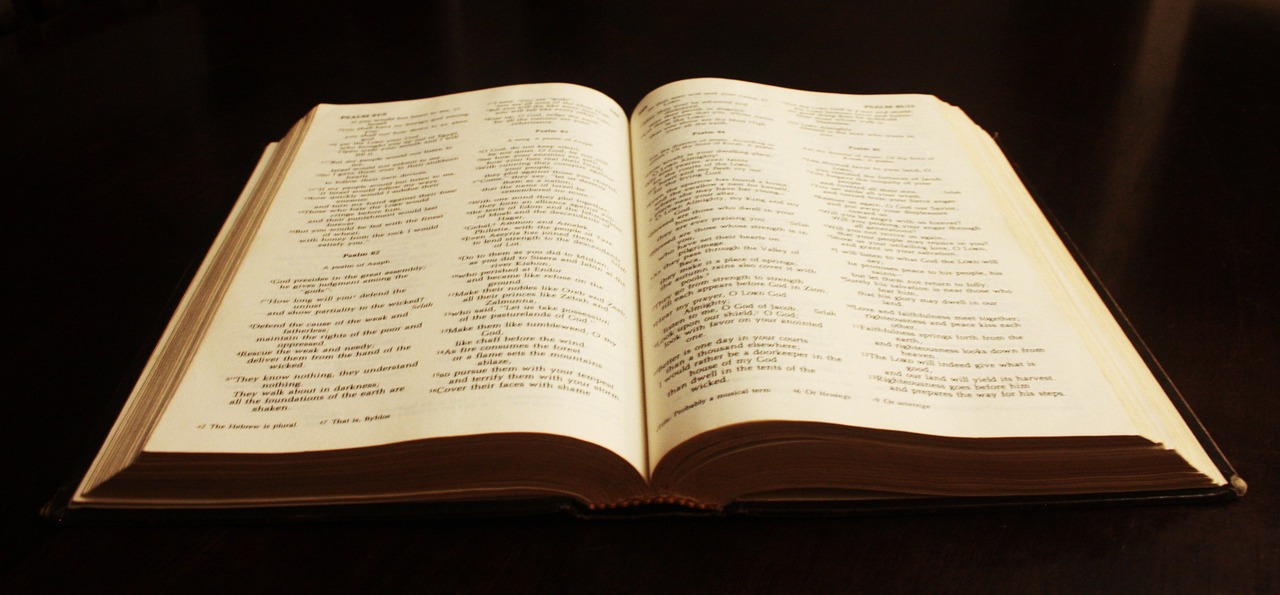Sola vs. Solo Scriptura – A Distinction Without a Difference (Cont’d)

Continuing My Reply to Dave Armstrong
Having demonstrated, in the first part of this article (Sola vs. Solo Scriptura – A Distinction Without a Difference), that there is no such thing as a “standard Protestant definition” of Sola Scriptura – or, for that matter, of any distinctly Protestant doctrine – I would like to finish up with my final two points in response to Dave Armstrong’s Reply to Gavin Ortlund article in which I was taken to task for using a supposedly invalid definition of Sola Scriptura.
2) “Sola” Scriptura vs. “Solo” Scriptura
I have been told, on two or three occasions, that the distinction between these two terms is very important, and that I am quite wrong, and quite ignorant, to confuse these two terms.
So, what is the difference between the two? The definition of “Solo” Scriptura, according to some folks, is the belief that Scripture is the only authority for the Christian on matters of faith and morals. “Sola” Scriptura, however, is the belief that Scripture is the only infallible authority for the Christian on matters of faith and morals. Which means, according to these Sola Scriptura purists, there is indeed authority within Christianity other than Scripture – the authority of the church, church councils, tradition, the Ecumenical Creeds (Apostles Creed, Nicene Creed, Athanasian Creed, and Chalcedonian Creed), and so on – but since Scripture is the only infallible authority, that makes it the ultimate authority in Christianity, with all other authority being subordinate to the authority of Scripture.
This distinction, however, between Sola Scriptura and Solo Scriptura is, in reality, a distinction without a difference. First of all, why do I, as a Catholic, use the definition of Sola Scriptura that I gave in the previous article – the definition that some would call “Solo” Scriptura instead of “Sola” Scriptura? I use it because that is the definition that I have learned from…guess who? Protestants.
The definition of Sola Scriptura used by the vast majority of the Protestants I have talked with over the years – which is probably a few thousand or so – is that Scripture is the sole authority for Christians in all matters regarding faith and morals. Period. Forget about the church. Forget about tradition. Forget about creeds or councils. Forget about anything else other than the Bible. Oh, for sure, there are other types of authority in Protestantism. For example, the pastor has the authority to buy a new stove for the church kitchen, or the deacons have the authority to hire a new pastor, and so on, but the one and only authority a person needs to consult on matters of faith and morals is the Bible, according to these folks.
The Classical Definition of Sola Scriptura?
Even the Protestants I’ve heard from who accuse me of using a faulty definition of Sola Scriptura readily admit that the definition I use is indeed the working definition for a majority of Protestants today. So I told them their problem, then, is with their fellow Protestants, and not with me. I also asked them what authority they claim to have that they can tell me, or their fellow Protestants, their definition of Sola Scriptura is the “real” definition of Sola Scriptura. After all, who, within Protestantism, gets to define such things? The response I received to that question was quite intriguing. They told me that their definition of Sola Scriptura, versus what they describe as Solo Scriptura, is the “classical definition” as used by the “Reformers.”
Do you see the problem here? The Sola Scriptura purists can supposedly trace their definition of Sola Scriptura all the way back to the teaching of the so-called “Reformers,” i.e., Martin Luther, John Calvin, Zwingli, and so forth. It is the “classical” Reformation teaching on the matter. I was never told it was the classical Thomist teaching on Sola Scriptura. Or the classical Augustinian teaching on Sola Scriptura. Or the classical Patristic teaching on Sola Scriptura. No, it was always the classical Reformation teaching on Sola Scriptura. Which tells me that the Protestant teaching on Sola Scriptura that these purists hold to, can be traced, according to them, all the way back to…the 1500’s. Go figure. Which means that they are indirectly admitting that the dogma of Sola Scriptura, however one may define it, did not exist in the first 1500 years of Christianity.
Also, as I demonstrated in my previous article, it seems the “classical” Reformation teaching on Sola Scriptura actually lines up pretty well with the definition of Sola Scriptura that I use.
Where is that in…an Ecumenical Creed?
Another problem with this Sola vs. Solo Scriptura distinction, is that the folks who make this distinction actually argue with me as if Scripture is indeed the only authority on matters of faith and morals. In other words, they may give lip service to other types of authority in Christianity besides Scripture, but when it comes down to arguing matters of doctrine with Catholics, what do they do? They tell the Catholic that if it isn’t found in the Bible, then it can’t be an authentic Christian belief. I have never, ever, had a Protestant appeal to the authority of the Church, or to a Church Council, or to tradition, or to one of the Ecumenical Creeds to tell me I was wrong. Never! As Armstrong even says in his “Reply to Gavin Ortlund” article, “Gavin says we must test non-biblical teachings by the Bible.” If it’s not in the Bible, says the Protestant, you don’t have to believe it.
I have also never had anyone tell me that some Catholic belief is contrary to one of the Ecumenical Creeds, or to one of the Church Councils, or to tradition, or anything of the sort. The one and only argument I get is: “That’s not in the Bible!” And, should I appeal to Tradition, or to a Church Council, or to Church authority, or to the Early Church Fathers, I am always and forever told, “That’s not from the Bible, so I don’t have to accept it because it holds no authority.” In other words, in theory, some folks try to make a distinction between Sola Scriptura and Solo Scriptura, but in practice, when it comes down to it, they argue from a so-called Solo Scriptura position – that Scripture is the only authority in all matters pertaining to Christian doctrine and morals.
Undermines the legitimate ecclesiastical authority…
Finally, one last problem with this whole Sola Scriptura vs. Solo Scriptura argument. In one of the major articles I’ve seen arguing that this distinction between Sola and Solo Scriptura is a real and important distinction – an article (A Critique of the Evangelical Doctrine of Solo Scriptura) written by a gentleman named Keith Mathison, who has a Master of Arts in Theological Studies from Reformed Theological Seminary – the author emphasized how Solo Scriptura, as opposed to Sola Scriptura, “…undermines the legitimate ecclesiastical authority established by Christ. It negates the duty to submit to those who rule over you, because it removes the possibility of an authoritative teaching office in the Church.”
Uhmm…doesn’t that pretty much describe what Martin Luther did? He undermined the “legitimate ecclesiastical authority established by Christ.” And, he did not “submit to those who rule[d] over [him],” and he rejected the “authoritative teaching office of the Church.” So, cannot one argue that Martin Luther was a believer in, and practitioner of, Solo Scriptura? Also, if you read Luther’s quotes that were cited in Part 1 of this article, he certainly sounds more like a Solo kind of a guy.
I could go on for another few pages with more arguments on this matter, but I think what I’ve written so far will suffice to prove my point: The distinction between Sola Scriptura vs. Solo Scriptura is, again, a distinction without a difference. Well, actually, I just want to mention that there is one more person who agrees with me on this – Dave Armstrong. In an article he wrote for Patheos back in 2019 (“Solo” Scriptura vs. Sola Scriptura: Reply to Keith Mathison), Dave had this to say: “Are SOS [Solo Scriptura] and SAS [Sola Scriptura] essentially different? My answer: no.”
Folks can argue all they want about some theoretical difference between the two, but when it comes down to it, there is no practical difference between the two, which is why the vast majority of Protestants hold to the definition of Sola Scriptura that I gave in Part 1 of this article and which is why it is absolutely correct to use that definition.
3) Setting the Historical Record Straight
As I mentioned in Part 1 of this article, Armstrong’s “Reply to Gavin Ortlund” article on Sola Scriptura, said the following: “This is the standard Protestant definition [of Sola Scriptura] and one that many Catholics don’t understand. Even some Catholic apologists don’t; for example, John Martignoni. In his case, I myself (as the editor of many of these particular tracts) tried to correct him by noting that the definition is as Gavin states here, but to no avail.”
Unfortunately, some important context was left out of that statement. For example, nowhere is it mentioned that Armstrong’s attempt to “correct” me, led to my responding to him with essentially the same arguments I have made in this article and the previous one. Arguments which show that I do indeed “understand” the definition of Sola Scriptura that he espouses. And, arguments that received absolutely no response from him in return. It’s also not mentioned that the folks at St. Paul Street Evangelization – a wonderful group of missionaries who are literally taking it to the streets – read my arguments as to why I use the definition of Sola Scriptura that I used in writing their pamphlet, saw that those arguments made perfect sense, and decided in favor of my verbiage for their Sola Scriptura tract rather than his.
I reject that definition
I have been talking about the supposed difference between Sola Scriptura and so-called Solo Scriptura for the last 11 or 12 years or longer. Again, I made these same arguments to him in an email several years back (2013 to be precise). Also, in my book – Blue Collar Apologetics (How to Explain and Defend Catholic Teaching Using Common Sense, Simple Logic, and the Bible) – which came out a couple of years ago, I talked about the so-called difference between Sola Scriptura and Solo Scriptura and showed that there is no practical difference between the two.
In my e-newsletter, Apologetics for the Masses, I talked in depth about this distinction without a difference more than ten years ago. And, as chance would have it, I was the guest on an episode of Johnnette Benkovic Williams’ “Women of Grace” program which aired on EWTN Television the very same day that Dave’s article – the one where he mentions me and takes me to task – was published. On that program, I talked about how some Protestants define Sola Scriptura as the only “infallible” source of doctrine and dogma for Protestants, and some don’t.
In other words, contrary to how the “Reply to Gavin Ortlund” article characterized me, I am well aware of, and do indeed understand, the supposed “standard Protestant definition” of Sola Scriptura that Armstrong champions. It’s just that, for all the reasons I’ve given in these two articles, I reject that definition as being “standard” for all Protestants, and contend that the distinction between Sola Scriptura and so-called Solo Scriptura is, ultimately, a distinction without a difference.















